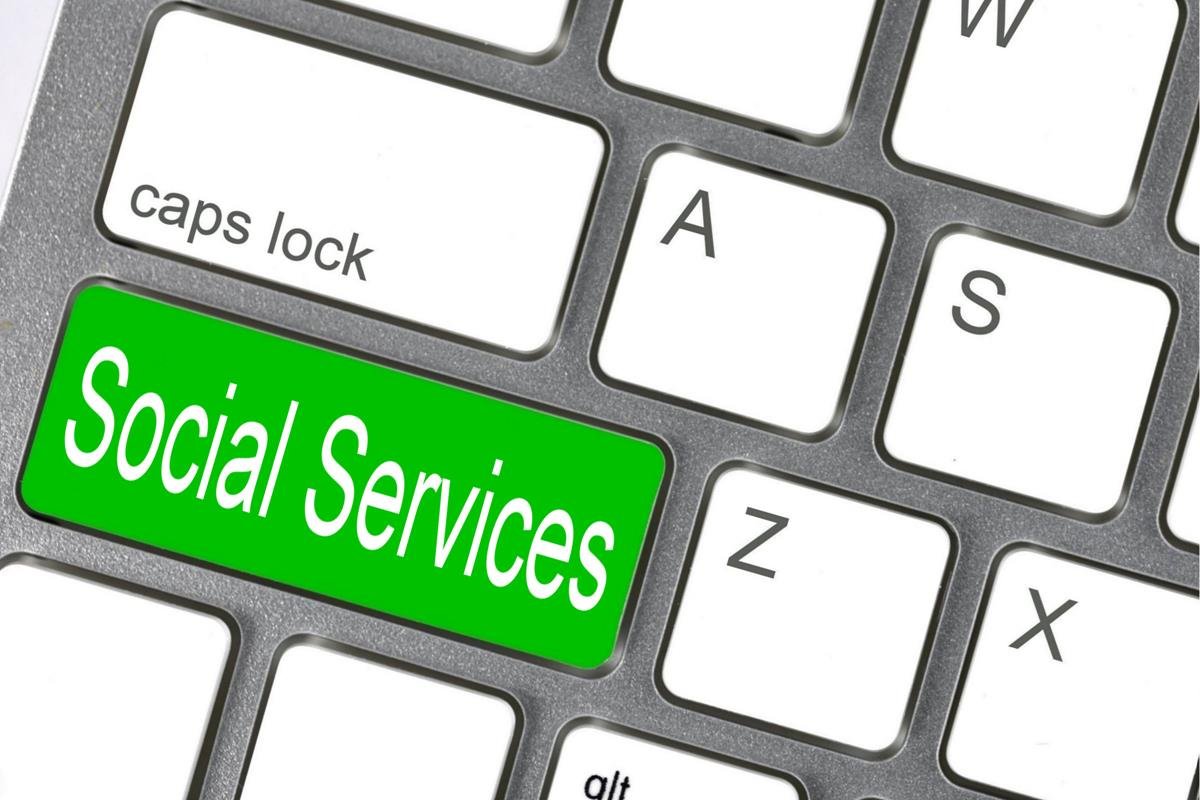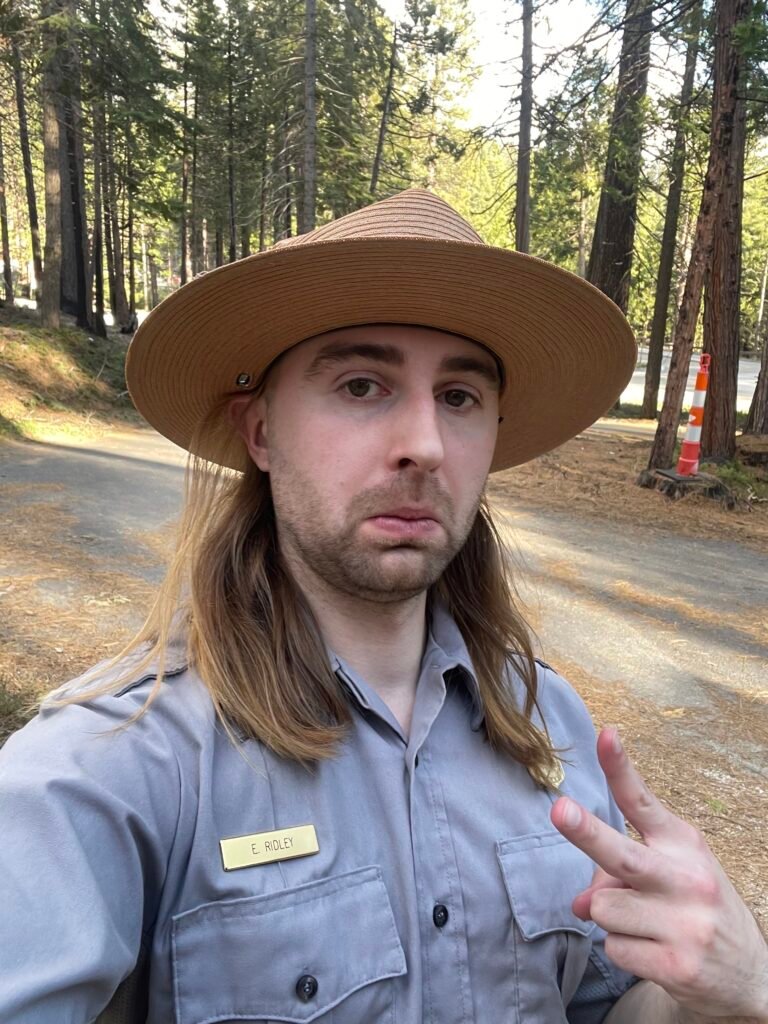
Having chosen to go to school without a clue what to do post-grad, I jumped at the chance to spend a year volunteering full-time, dually in the AmeriCorps and Jesuit Volunteer Corps. What started as a one year gap to broaden my horizons on the problems facing our communities turned into a four-year career filled with more ups and downs than something you would build in Roller Coaster Tycoon. Close to a year ago, I left the field feeling scarred. The things I saw during my time in the field humbled, scared, saddened, and evolved both me and my views on the view.
In this post, I thought it would be interesting, possibly insightful, and possibly controversial to reflect on social work and my time working in “The System” – what works, what doesn’t, and how we can make realistic steps to fix the larger issues in society. Next post, I will follow up with a more entertaining look at some of the weird, wild, and wacky things I saw on the job; stories so wild I couldn’t make them up if I tried.
***Important disclaimer: I am not a clinical Social Worker; I have no advanced degree in the field and ended up working in it almost entirely by accident. This post is not a political statement; these are my honest, unfiltered observations, reflections, and opinions. I worked boots-on-the-ground, front-line the entire time – an essential worker during COVID who was never moved into a management position.
How did I get there?
As far as my background getting into social work, I had precious little experience. Apart from some brief volunteer work and school-mandated service hours growing up, I must shamefully admit I was not really an active member of the local community and didn’t really confront nor learn about the larger issues at play. Growing up in a middle class family, my life shielded from a lot of the struggle going on in our communities. I graduated school with a Bachelor’s Degree in History with a minor in Counseling.
The four years I spent in social work were spent performing a WIDE variety of jobs – truly a jack-of-all-trades/master-of-none experience. I started out working phone lines and sitting at the front desk of a non-profit, serving as the first point of contact. From there, I expanded into case management with folks in emergency situations, utilizing rental and emergency assistance grants, and co-ran a food pantry. With the onset of COVID, I both provided delivery services of emergency goods directly to families and worked the now-infamous COVID relief programs that came along with the national eviction moratorium.
Once the world began to move to the new normal, I added budgeting for grants, partnering and networking with other agencies, working with various Veteran’s projects and support programs, and spending some time providing advocacy in nursing homes to my resume as well. My work took me across two states: one a mid-size and somewhat metropolitan region, and one a small city surrounded by rural areas.
Who Did I work with?
Clients
The sheer diversity of the populations I worked with was breathtaking. This is diversity in all aspects, including but going beyond race: age, education, financial stability, mental health, politics, religions, (dis)abilities, genders, childhood upbringings, and cultures. I worked with billionaire property developers in Manhattan in the same day I worked with a family who didn’t know where they were going to sleep that night. Incredibly generous people crossed paths with me: a family who, upon us being able to pay to keep her lights on, offered to have me over for a full Polish dinner comes to mind. I greased palms with some despicable slumlords. I also met some of the rougher fringes of society: hucksters seeking a quick buck, sex abusers, the severely mentally ill, struggling addicts, and people emerging from incarceration.
The hardest situations were ones involving children. I got to know both the visible and invisible signs of a rough home life or even abuse pretty well and it broke my heart. There were times I wondered, “What chance does this kid really have?” While their are more resources designated to try to protect children, both CPS and the foster care system are far from perfect and, in the worst cases, can even make a kid’s life worse. CPS struggles from high turnover (more on that to come), and the sheer of amount of foster kids has created a system that is tough to routinely check in on every single child and ensure their safety.
One interesting divide I noticed was the difference between people seeking non-profit aid for the first time versus those that are still struggling and consistently returning for aid. First-timers were, almost across the board, deeply embarrassed about being in a situation where they felt they needed to ask for help. There is a lot of pride at play, especially in a society that emphasizes rugged individualism. It hurt to see the pain in their eyes; there was also a troubling element to a lot of stories, however, that without being said aloud had undertones of emphasizing how they weren’t like others seeking help, that this was just in a hard spell at the moment and it would never happen again if I granted them access to aid. Is there a numbing process, or is this just a case of when person’s station in life gets increasingly desperate, it becomes easier to ask for help? I don’t know. This is just as troubling; even some clients I didn’t work with directly I got to know by name from seeing them stop in over and over, unable to, for any number of reasons, escape the vicious cycle of poverty.
I will state that, although there are always exceptions to every rule, the vast majority of people I worked with worked hard (the “lazy” tag often gets thrown on the poor) and wanting to improve their lives and the lives of those they love.
The Fringes and the marginalized
Social work shines a light on the fringes of society, the “forgotten” people if you will. I’m talking about single mothers (and fathers) trying to make ends meet, lonely elderly without family close by, and disabled individuals who literally are unable to work for a living. It became hard to avoid the difficult question: why, if not deemed “useful” in some way by a community or larger society, do people just kind of tucked away into places where they can be forgotten while living out there lives? I heard this feeling from people working with all of the groups above and others, and it really does make you think.
There are also groups that can struggle for reasons outside their own. Whether we are talking race, gender, religion, or any other way society breaks itself into subsections, there are reasons, basically forming a trickle-down effect of sorts, that explain why there were more of a certain group needing aid more often than others:
Housing & property owners
Of all the necessities for life that make up the bottom of Maslow’s Hierarchy of Needs, shelter is consistently the biggest issue facing the United States as a country. It remains the biggest issue in both areas I worked, and I heard the same from regional and statewide conferencing with other social workers. Besides the scarcity in supply that is all over the news, there are other factors at play – ugly ones at that. As far as obtaining housing, I witnessed and attempted to aid hundreds of people in searching for housing and two issues stand above the rest: criminal records and the ultimate Scarlet Letter, past evictions. Sure, other, subtle forms of discrimination happen more than people care to admit, but depending on the state you live in, these are two perfectly legal ways to decline an application for a property.
Prior evictions and a record: they follow you like a specter, a shadow you can’t escape from. A good chunk of landlords just straight up toss any application with either of those two things and, as sad as it can be, I get it: how is one person supposed to determine if the person has reformed and is in a better place, or are they prone to relapse? How is one person supposed to determine if an applicant is financially stable; bank statements don’t tell the whole story of what is going on in someone’s life?
On another note throwing the housing market into chaos is the fallout from COVID-19. With rents late in coming and housing prices soaring, a lot of your traditional, “Mom-and-Pop” landlords sold their homes to larger companies, who in my experience are less amenable to working with aid and less willing to consider applicants with less-than-stellar qualifications. Heck, I heard from one manager that they would rather have an apartment sit vacant than risk a tenant who might struggle to keep up with rent. Needless to say, that doesn’t make the social work side of life any easier.
What went wrong here? Issues with the system
Legislative Shortcomings
Where do you even start with this? Everyone knows “The System” sucks! If I had to define it, I would call it a bundle of bureaucratic red tape, poorly funded and ill-conceived “programs”, and an overstretched and underfunded workforce. What struck me as the most heartbreaking is how much money and how much effort is often spent to make little change.
Let’s start with grant-based funding: the backbone of most of the things you see in the field of social work. Whether privately or government funded, this is basically money that needs to spent by a non-profit a certain way and with certain restrictions. In theory, it’s a good idea – standardizing qualifications for aid to avoid people abusing services. In practice, I think restrictions often make the situations worse:
One of my first cases was one that stuck will stick with me forever: a young gentlemen, with a criminal history, was getting into landscaping and had bootstrapped a business together. He was doing pretty well too, per his bank statements. The only problem: unable to get a decent loan, he spent all of his own money on equipment, which left him short on rent money. He came to me under threat of eviction, and I screened him for the only rental-assistance program in town apart from TANF (Temporary Assistance for Needy Families) through the county’s Social Services division. This program had an income requirement that had to be met – a qualifier needed to have a gross income below a certain threshold. Because business was booming, his income was above the qualifying line and he was punished for trying to get ahead in life.
In a similar situation, I had decline a family for funding to get into a new apartment – two veterans and a wife. The veterans were both disabled and hadn’t yet been approved for disability income, and the wife grinded 80 hour work weeks. I bet you can see where this is going…she was working so much to keep them in a hotel and off the streets that she made too much money to qualify for aid. To be completely honest – I tried to play with the math everyway I could to make it work. It didn’t (everyone bit of aid is audited to catch discrepancies); they threatened to drive off a bridge on the way home and I made a call for an emergency wellness check that thankfully confirmed they were okay.
Health insurance, so vital to have to avoid financial ruin with one major illness, also goes on the same premise: government-funded Medicaid has very strict income qualifications. If you are impoverished and don’t have healthcare tied to a job in the United States, and your income rises above what is a very low threshold, you lose your health care unless you can afford to shell out the money for a private plan or ObamaCare, neither of which is super cheap. Yet another service that seems designed to keep people down.
211 is a little-known free service that, when you dial that number, can provide you information and referrals about community resources that may be able to help. I highly recommend using this service just to gain information about agencies or government programs that can help; don’t do the referral system and just call the places directly. In almost every agency I worked with or spoke to, referrals go right to the bottom of the list behind people contacting the place directly.
Disabled and applying for disability? If you don’t have a support system in place, the process to obtain SSI/SSDI benefits can be a person’s worst nightmare. This is a HUGEEEE blind spot: the process to get approved can take upwards of a year, during which time a person cannot work above a set number of hours a week lest they jeopardize their eligibility. Food and housing costs don’t just magically disappear for the year folks!
Section 8 housing vouchers (formally called Housing Choice Vouchers) are a well-intentioned mess that can serve as a hindrance to finding housing against the program’s premise of making finding housing easier and more affordable. Utilizing the voucher, which pays a portion of one’s rent based on income, means finding a property owner who will accept it. Due to a process of inspections that lead to added oversight of the property, there are a good amount of landlords who simply don’t want the added hassle and will decline all Section 8 vouchers, leading to a sizable chunk of vouchers provided yearly going unused. Want to get on the list? Good luck – the wait list in most counties is closed, with the current list taking sometimes upwards of 10 years to get through.
A last resort for most people, emergency shelters face several issues of their own. Often, the number of shelter beds pale in comparison to the need, especially for single folks as families deservedly get prioritized. In addition to shortages, shelters are also very restrictive on guests, which some find dehumanizing. Mandatory meetings, curfews, and “out-times” where you need to leave the shelter (ostensibly to find work) are common, and I met several people who flat-out refused to consider it an option out of principle – one person told me straight up they would find a way to get sent to jail in case of emergency, because at least there you were guaranteed food and shelter.
Agency Shortcomings
Non-profits largely struggle for funding. That shouldn’t be a shock to anyone, but the knock-on effects are huge. This leads to the major staffing issues that plague the whole industry: the staff is often spread thin and turnover is so high that it leads to chronic undertraining. Put it this way: in one position I held, I was screening and triaging potential clients on the verge of homelessness by the end of my first afternoon on the job, without a clue about what even our own agency could help them with. With that, it isn’t hard to see how burnout is chronic within the industry, even among workers that are much better people than myself. A dirty, dark secret related to this: when employees are tired, they are much less willing to fight, and I’ve seen people get what they want over others much more deserving by badgering and even bullying staff into submission.
Also adding to the turnovers problem is the lack of protections, both physically and financially, for staff. In my four years, I had a gun pulled on me doing a home visit with no backup, was threatened physically/with lawsuits/with the press, and called all sorts of names I can’t repeat here. I worked closely with a worker at a women’s Domestic Violence shelter, only for her to later show up at our agency seeking help fleeing her own abusive relationship. Working in the psych ward of the hospital? You can’t defend yourself in certain cases if attacked. It’s a low-paying career, albeit one that usually comes with decent PTO due to the battery-recharging needed.
Entry level workers will often be making little more than the clients they are trying to help, and not having financial stability of your own limits your ability to keep your focus on helping others properly. There are ways to make a decent living in social, I should mention: certain government agencies pay handsomely within a few years of rising of the ladder, and health insurance companies the same. Obtaining a Master’s Degree in social work is huge for moving up the pay scale, although it comes at a massive upfront cost and requires a lot of sacrifice for a majority of people.
To sum it up, resources are limited and fought over when you are fighting the grind of poverty. Desperate people will also do desperate things…
Poverty: Beyond just finances
“Just get a job!” “Find somewhere where you can make more money!” Those common refrains leave so much out of the equation of the struggle to survive. Heck, if it were just that easy, I bet a lot more people would do it, because believe it or not, most people want stability in their lives! The dirty little secret is that it’s not super easy to get and maintain a job depending on internal and external barriers.
By internal barriers, I mean things like kids, transportation, stable housing, and mental and physical capacity to perform a job.
External factors largely center around the economy – the amount of jobs available within a reasonable distance as well as what kinds of jobs are available, and the increasingly complex hiring process (hop on LinkedIn one of these days and you can see the many people describe the hundreds of applications they poured in just to get one acceptance). Certain economic cycles will involve downsizing in companies and thus have fewer jobs available. Traveling to a job can be a challenge in and of itself, which brings me to my next point.
Being poor is expensive. Sure there are financial implications – if you live in an area where you need need one, used cars are cheaper and more attainable to a wider net of financial statuses, but they also break quicker and cost more in the long run than a new one. Same goes for luxuries like laundry – the laundromat adds up quickly; washers and dryers are costly, but in the long run save money for people who can afford them.
It goes beyond just money; it is expensive in time as well. Think about this: when a billionaire needs to go somewhere to conduct business, what do they do? They hop on a private jet and get from point A to point B as fast as possible.
If you are struggling and relying on public transportation, you need to schedule out your day and account for delays and changes from one route to another to get to your destination. Single? That means making multiple trips a week to get groceries, since there is only so much you can carry in one load. Have kids? That means someone needs to stay home and watch them or there needs to be enough money floating around to afford daycare. The cost of increased time spent traveling and performing basic tasks to live detract from the time you have to, yes, raise a family, but also to learn new skills or go back to school.
What was My Experience?
The first and biggest lesson I learned was that you can’t help everyone. My first week, I was downright depressed by the crushing poverty I witnessed and the amount of “no’s” I had to utter to people seeking help. Heck, at the busiest times, I couldn’t even guarantee people a phone call back as the voicemail box filled up daily with 50+ messages. One starts to feel like a Harvard admissions counselor at times – for one month, our agency took a waiting list for rental assistance over 200 people long. Guess how many qualified by the end of the month? 11. The most important skill, I believe, for any social worker is the ability to let things go at the end of the day and have something to take your mind off work. If not, you will struggle.
Another important thing I learned is the ability to not overreact. Social workers see some shocking things – apart from the instances I’ve mentioned above, things I’ve been greeted with on Monday mornings include bullet holes and emails from a paranoid Schizophrenic threatening to blow up a judge over a parking violation. It’s crazy how quickly you become numb to things and they just feel like an average Tuesday: the toughest one was being seated across from a father in court over sexually assaulting his kid, and my job requiring me to treat him like anyone else despite the sheer anger I felt.
You also develop quick the BS radar; you start to learn who really needs help versus who is poking and prodding around to see what they can get away with.
One minor thing I’m a firm believer in for this field is (hospital settings aside obviously) is dressing casually when in the field. I find that dressing more in more “professional” attire sets the wrong tone and accentuates a power imbalance between the worker and the person seeking assistance when it really should be a team effort. I do believe heavily in the importance of treating the people you serve as equals – when someone literally has nothing left besides their dignity as a human being, respecting that becomes the most important part of the job and keep good relationships.
Shining a Light on Some Good
After a lot of negativity, I do want to shed some light on some good things going on:
Non-profit job training programs can be an absolute lifeline, providing a means and network to obtain quick and stable employment after classes once or several times a week for a couple months. Places I worked at and partnered with had some great ones, one of which being a line cook program where, by taking 2 classes a week for 3 months, an enrollee became certified to work as a line cook in a restaurant. The program had contacts with restaurants looking to hire in the community, and there was a solid pipeline going.
There are some programs that make a huge impact, and the ones that do I find target a specific population exclusively: one that comes to mind is the Long-Term Care Ombudsman program spreading across the nation to provide a voice for struggling seniors in nursing home facilities. When utilized properly, this program forms a perfect bridge between residents and staff social workers to iron out and resolve issues with care without pitting the sides against each other.
Good Samaritans do still exist. A colleague of mine once ran into by complete accident a elderly widow who was looking to put her millions to use for the community, and was led to linking up with a project planning a community of tiny homes. A single veteran I met put together a support network of buddies to privately source emergency financial aid without red tape for fellow vets.
From my experience, even the most jaded and burned out social workers still do their best and try to keep centered on clients. While I am sure there are outliers as in every profession, the only time I experienced raised voices from a staff member was when they were openly being lied to or fed BS.
Despite feeling like a Harvard Admissions Counselor at times, miracles can and do still happen: these kept me going longer than anything. Whether it’s finding a family to adopt a child, preventing a family from being forced out onto the streets, keeping someone fed, or even just providing an ear to someone lost or suffering from mental health issues, the times I got to experience a real success kept me going day after day – one that sticks out was a frantic drive across town with a rental check in my backseat to hand-deliver it to a property management company less than one hour before the sheriff’s department was going to be called to evict a tenant.
What are the biggest challenges? Any solutions?
The most common negative feedback I heard from clients, about both the places I worked but also with other non-profit and government services, was that they often feel like they are given the run around or can’t reach anyone to speak with. While the sheer number of callers makes it difficult to guarantee a quickly returned call, I think non-profits can make pretty simple changes to eliminate the “run around.” The key thing is honesty: my idea is to consistently update websites (including the 211 system), front lobbies, and employee voicemail’s with a list of exactly what services are on offer to eliminate confusion or outdated information. I can’t tell you how many times I answered a call asking for something I couldn’t provide, only to hear that they saw that service online.
I also advocate for being clear with requirements for services – don’t waste someone’s time setting up a meeting if you don’t think they will qualify. While that would seem to open the possibility up for fraud, which is why a lot of non-profits closely guard qualifications in the first place, I say balance that by requiring more documentation (ie bank statements AND current income proof for financial assistance) to cut down on the chances of the system being gamed, which does happen whether people want to admit it or not.
Red tape is a big issue with getting aid out to folks, especially when it comes to financial aid. A well-intentioned set of checks and balances often drags out processes both on a macro level (think zoning laws that make building housing difficult and expensive) and a micro level (such as only having paper applications instead of being able to do upload and fill out everything online). Laws need to be changed to make building housing an incentive for both builders and the community, so that there is less opposition especially when it comes to mixed and lower income housing. With additional supply, demand naturally falls and makes housing more affordable.
On a smaller level, I think removing barriers to accessing services can also be shortened by utilizing technology. Although different strategies need to be developed for less tech-savvy, often older people, the vast majority of people across all income groups are now able to access and complete forms online from either a smartphone or with free Internet at a library. Automation allows workers more time to do their job better for each person they work with.
I think we need to reevaluate how we come up with social service programs, too. I think we need to poll the people we are serving, who are often the most marginalized in society, as to what they feel the greatest needs are. Too often I sat in meetings of programs dreamt up and deployed by lifelong bureaucrats who have never worked in the field or, even more importantly, never been on the opposite side table actually needing help. The worst example I ever heard of this was, in a nationwide meeting to discuss the funding, I was told that COVID relief funds could be used to obtain furniture…until they maxed out their allocated funds and then would need to return it. Seriously? Rental furniture? Some of the guidelines could just be maddening and any worker could tell that some rules just don’t work as intended.
Last, I feel increased safety regulations would be key to maintaining and building staff. I think instituting a “buddy system” industry-wide for in-person meetings outside an office would be helpful – it provides additional support and can back up the primary worker if needed. In addition, I think allowing a limited amount of self defense is needed for hospital and crisis workers in case of emergency. To prevent potential abuse, I think having body cameras for jobs involving higher risk (think wellness checks) is a reasonable means of maintaining balance in hairy situations.
Wrapping it All up
Those are just some of my observations and experiences, but I would love to hear from others in the field about their thoughts or outside opinions too!







Your post definitely confirmed so many challenges that our social workers face every day. So many people face so many challenges in this world, and social workers are there to try to support them. However, they also experience so many hardships trying to be there for their clients and often burn out due to these challenges. They themselves need supports in place in order to help them be effective and stay in the field. You definitely shared personal experiences that confirm the need to support all social workers and all of the clients they work to support .
Thanks and thanks for reading!
WOW – that is an amazing story that goes untold to all of us. There is definitely a book here that should be written and sent to the government oversight departments to reduce their fraud and educate our citizens.
Having volunteered for some nonprofit organizations in my life and worked with some nonprofit organizations and parochial schools to raise revenue to help their target client base to improve their services or to provide aid in reducing tuition I can relate to just a few of your experiences. For that I am extremely grateful. What I did learn was that some nonprofits are either government run or government ruled. THIS IS NOT GOOD! The amount of funding as you said is grossly understated for the real worlds needs but funded just enough to look like the government is helping.
The government is also really good at making the public believe their funding is going to this specific non profits needs when in reality some of the budgeted money is earmark for another area/ organization that is beneficial to what the government wants. I am grateful for many of the wealthy individuals in our country that consistently support huge sums of money to the needy. Without their overwhelming generosity many of our helpful nonprofits would never reach and accomplish their goals. Every time I hear the chant to raise the tax on the rich I cringe. Those enlarged tax amounts will be used for what the government wants and not necessarily what the country and its people’s need. If your readers have never counted their church’s collection after weekend services I encourage them to volunteer. They will be amazed by the generosity of their fellow parishioners. This has been a GREAT EYE OPENER!
Thanks for taking the time to read and for sharing your thoughts! I wanted to respond with some of my own:
-When it comes to fraud, I wasn’t taking a specific shot at either government-funded, non-profit, or religious charities solely – I think across the board when you have such a ginormous population as the US does with the extreme need currently in the country that there will naturally be cracks that form, in any organization, especially those which are understaffed which I believe all of the above are.
-Thankful for your service with nonprofits! With regards to accepting government funds, I think that goes back to a lack of private funding – large and small nonprofits operate on fine margins from my experience and there are not enough private donors to single-handedly pay the bills and keep them afloat. While government grants are certainly restrictive in how they can be used and wrapped up in red tape, I also found private donors to have similar qualifications and restrictions on how their money can be used as well, so for me it is a double-edged sword.
-I personally did not experience government funds being subverted to different uses than it’s stated purpose, but one thing I do believe that is a cause for a lot of confusion is that the amount of money given out in a grant is almost never equal to that of what is actually given out in aid. For example, a $100,000 anti-homeless grant may see $33,000 actually given out in aid to people, while the rest of the money is earmarked to cover staff salaries and program costs such as auditing.
-While I do greatly appreciate the many generous people who have donated vast sums to the those in need, I am troubled by the fact that the income inequality gap in the States has been on the rise the past 50 years, outstripping most other developed countries. Couple that with incomes not rising to meet the levels of inflation has created a bad recipe. To me, that shows that, despite the vast wealth and resources possessed in this country, there is no trickle-down effect to the lower classes. While it would certainly be easier and preferable if a fever of philanthropy spread across the richer classes to benefit all the people, the fact is that the chasm between haves and have-nots is widening. The money to aid those in need needs come from somewhere, and to me it makes all the sense in the world to have those with the most pitch in more to help those with the least, helping our neighbor as ourselves. In almost all cases, this won’t affect the bottom line for the upper-most wealthy substantially.
Again thanks for reading!